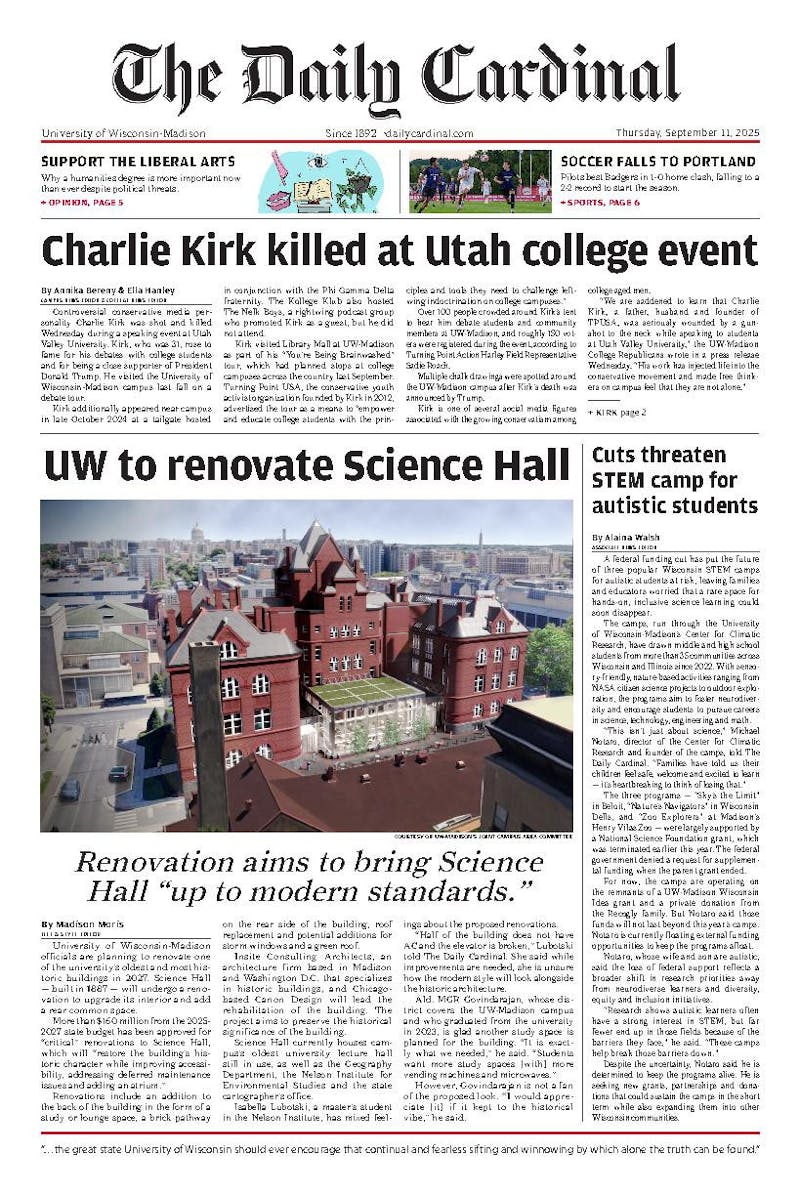The UW-Madison Faculty Senate voted Monday to support a state bill that would exempt non-state-funded university employees from state-imposed furloughs.
The existing furlough system, created by an executive order from Gov. Jim Doyle, requires most state employees to take 16 days of unpaid leave in an effort to reduce budget deficits.
The Smart Furlough Bill, which was reintroduced into the state budget proposal last year by state Rep. Kelda Helen Roys, D-Madison, aims to increase the state's savings from the furloughs by exempting university employees who are not paid with state funds, such as researchers funded by federal grants.
According to the Faculty Senate resolution, proponents of the bill say it would allow UW-Madison to invest more money in research funding rather than pay for state furloughs.
Jack O'Meara, legislative representative for the Public Representation Organization of the Faculty Senate, said the resolution could get the attention of state lawmakers who have opposed the bill in the past.
""Hopefully it will ... bring some attention to it, to the fact that it is important to the faculty, it's important to the university,"" he said.
According to O'Meara, some public employee unions in the state oppose the bill because they say all state employees should be treated the same and have the same furlough.
University Committee Chair William Tracy said the Faculty Senate's support could serve as a recommendation for the Assembly Labor Committee when it votes on the bill.
According to O'Meara, if the bill passes, the state would save around $9 million currently used for state furloughs.
""We are rejecting some money by doing this and, especially in a time of economic downturn, you need as much money as you can fuel in the economy,"" he said.
The Assembly is expected to vote on the bill within the next few weeks.
Textbook costs
Associated Students of Madison Academic Affairs Committee Chair Jonah Zinn also provided views on the rising price of textbooks at the meeting Monday.
According to Zinn, 48 percent of students have refrained from buying textbooks in the past, reducing students' quality of education and hindering professors' ability to teach classes.
""We believe that this is not just a student issue, we believe this requires a student impact in response to the issue,"" Zinn said.
Some faculty members proposed rental programs, posting book lists early and reducing the number of required new textbook editions as possible solutions to the problem.






